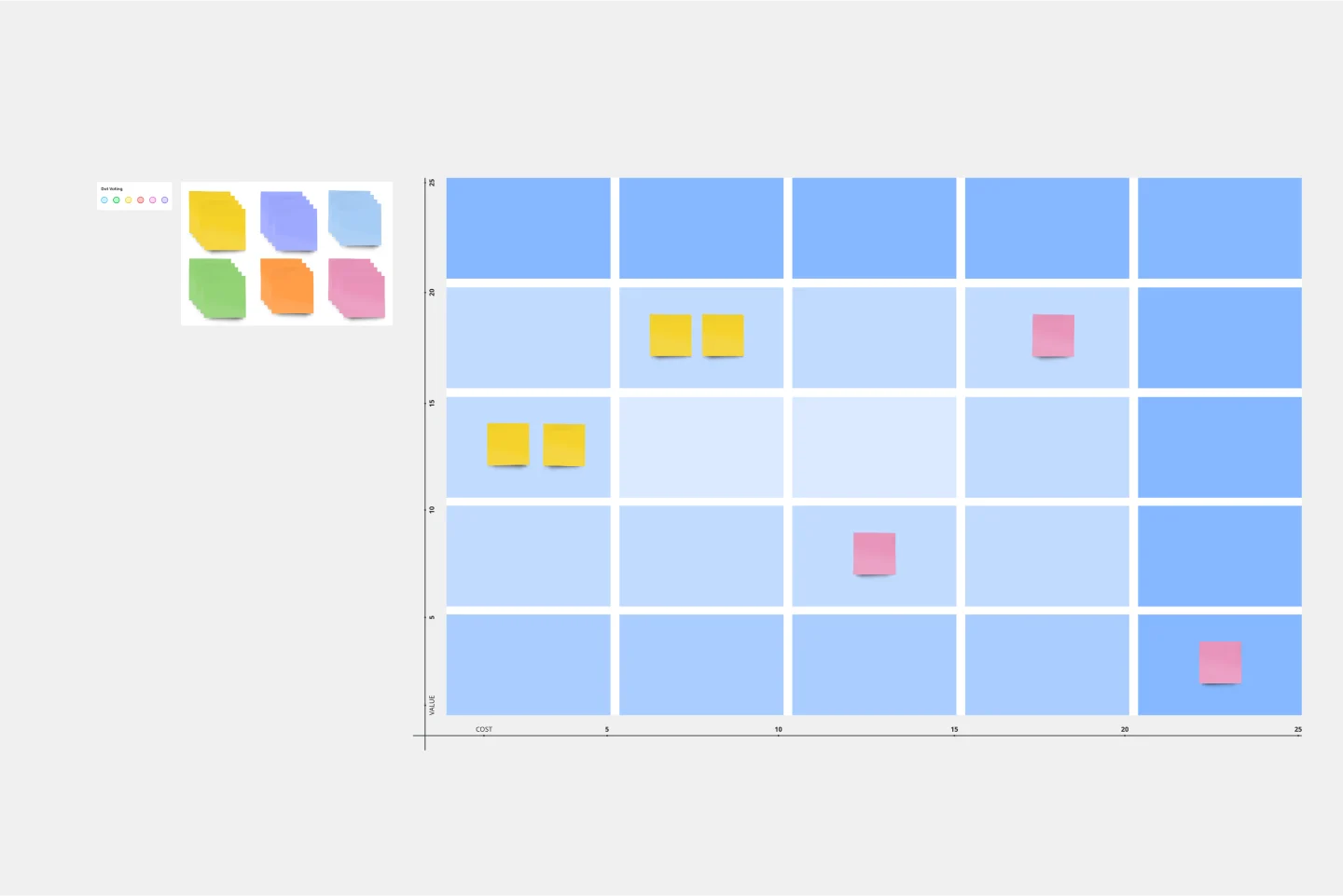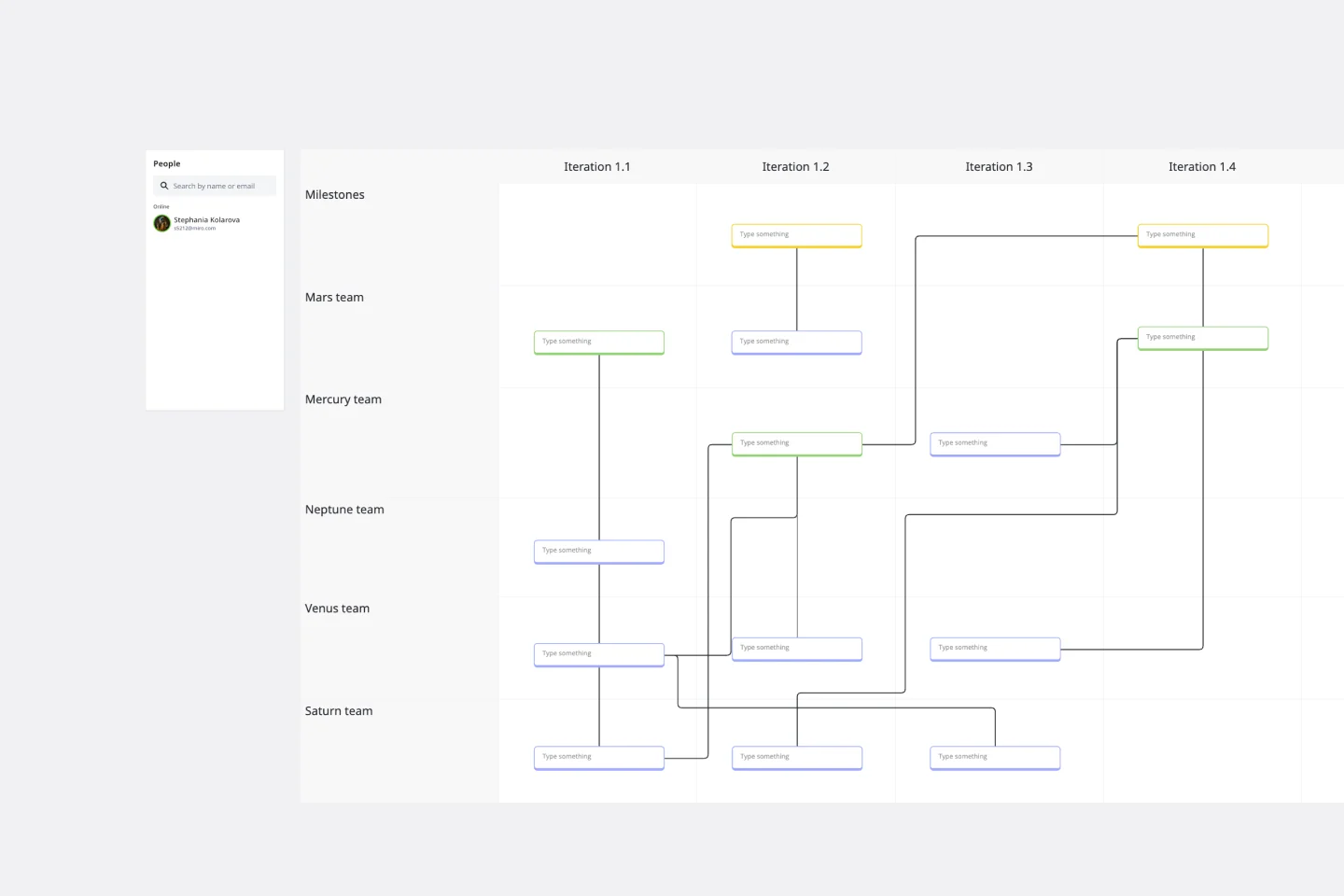About the Sprint Review Template
The sprint review is a crucial part of the Agile methodology, allowing teams to present and discuss the work completed during the sprint. It's a moment to showcase progress, gather feedback, and plan for the next steps. The sprint review template is designed to facilitate this process, offering a structured and efficient way to organize and conduct sprint reviews.
The template consists of the following three sections: 1. Sprint items: - This section provides a brief overview of all the completed tasks during the sprint. - It serves as a quick reference point for the team to recall the tasks that have been accomplished. 2. Feedback area: - This section is dedicated to feedback from the team members on the sprint outcome. - It includes areas for constructive criticism and suggestions for improvement. - The feedback received in this section can be used to make informed decisions to improve the upcoming sprints. 3. Space for questions and context: - This section is for any questions or concerns that team members may have regarding the sprint. - It also includes space to provide context to the feedback given in the previous section. - This section can help address any issues that may have arisen during the sprint and provide clarity to the team. Using this organized approach ensures that all critical aspects of the sprint are covered during the review and allows for a more efficient and effective review process.
How to use the sprint review template
Edit the template: Tailor the template to fit your sprint specifics. Personalize sections and add or remove elements to reflect sprint outcomes.
Showcase completed work: Use the template to summarize and present the work completed during the sprint, highlighting achievements and challenges.
Gather feedback: Use the feedback sections to capture input from stakeholders and team members, fostering a two-way dialogue.
Plan next steps: Use the template to facilitate discussions on the next sprint, including goal setting and task prioritization.
Why should you use a Sprint Review Template?
Structured review process: Provides a clear, organized framework for presenting and discussing sprint outcomes.
Enhanced communication: Facilitates open dialogue between team members and stakeholders, ensuring everyone's voice is heard.
Efficient use of time: Streamlines the review process, making it more productive and focused.
Easy tracking of progress: Helps in visually tracking the progress and outcomes of each sprint, building a history of achievements and learnings.
Facilitates continuous improvement: Encourages reflection on what worked well and what can be improved, fostering an environment of continuous learning and development.
Sprint Review FAQs
Is the template suitable for non-technical stakeholders?
Yes, the template is designed to be user-friendly and accessible, making it suitable for both technical and non-technical stakeholders.
Can I use the template with other Agile frameworks?
You can easily add the sprint review template to other boards that you use for product planning, roadmapping, or feature/backlog grooming. All you need to do is copy and paste the template onto other Miro boards or download it as an image or PDF.
Can the template be reused for multiple sprints?
Yes, the template is designed to be reusable, allowing teams to adapt it for successive sprints and maintain consistency in their review process.

Miro
Your virtual workspace for innovation
Miro is an innovation workspace designed for teams of every size, everywhere, to dream, design, and build the future together. Our mission? To empower these teams to create the next big thing, powered by AI at every step of the way. Over 90 million users around the world rely on Miro to untangle complex ideas, put customer needs first, and deliver products and services faster. All supported by best-in-class security, compliance, and scalability.
Categories
Similar templates
SAFe Roam Board

SAFe Roam Board
A SAFe ROAM Board is a framework for making risks visible. It gives you and your team a shared space to notice and highlight risks, so they don’t get ignored. The ROAM Board helps everyone consider the likelihood and impact of risks, and decide which risks are low priority versus high priority. The underlying principles of SAFe (Scaled Agile Framework) are: drive cost-effective solutions, apply systems thinking, assume that things will change, build incrementally, base milestones on evaluating working systems, and visualize and limit works in progress.
Bang for the Buck Template

Bang for the Buck Template
The name pretty much says it—this Agile framework is all about helping you maximize efficiency by powering collaboration between product managers and dev teams. Together you can go over each to-do on the project agenda and evaluate them in terms of costs and benefits. That way you can prioritize tasks based on how much bang for your buck they deliver. This template is great for teams and organizations that want to make a strategic plan to tackle an upcoming sprint.
Agile Transformation Roadmap

Agile Transformation Roadmap
An Agile transformation roadmap can help you, your team, and your organization transition from rigid compliance-heavy methods to the more flexible Agile way of doing things incrementally. From requirements to integrations to security, you can map out your organization's moving parts as “swim lanes” that you can then update regularly. Use your roadmap as a way to tell the story of how you see your product growing over a period of time. Get buy-in without overselling and keep your roadmap simple, viable and measurable. By using an Agile transformation roadmap, you can avoid getting bogged down in details and instead invest in big-picture strategic thinking.
SAFe Program Board

SAFe Program Board
Many organizations use the Agile model, but even companies that don’t rigorously adhere to all Agile standards have adopted Agile tools and methods like Program Increment (PI) Planning. Even if you’re not participating in a formal PI session, a program board can be a great way to establish communication across teams and stakeholders, align development objectives with business goals, clarify dependencies, and foster cross-functional collaboration. The board provides much-needed structure to planning sessions, yet is adaptable enough to accommodate brainstorming and alignment meetings.
SAFe Roam Board

SAFe Roam Board
A SAFe ROAM Board is a framework for making risks visible. It gives you and your team a shared space to notice and highlight risks, so they don’t get ignored. The ROAM Board helps everyone consider the likelihood and impact of risks, and decide which risks are low priority versus high priority. The underlying principles of SAFe (Scaled Agile Framework) are: drive cost-effective solutions, apply systems thinking, assume that things will change, build incrementally, base milestones on evaluating working systems, and visualize and limit works in progress.
Bang for the Buck Template

Bang for the Buck Template
The name pretty much says it—this Agile framework is all about helping you maximize efficiency by powering collaboration between product managers and dev teams. Together you can go over each to-do on the project agenda and evaluate them in terms of costs and benefits. That way you can prioritize tasks based on how much bang for your buck they deliver. This template is great for teams and organizations that want to make a strategic plan to tackle an upcoming sprint.
Agile Transformation Roadmap

Agile Transformation Roadmap
An Agile transformation roadmap can help you, your team, and your organization transition from rigid compliance-heavy methods to the more flexible Agile way of doing things incrementally. From requirements to integrations to security, you can map out your organization's moving parts as “swim lanes” that you can then update regularly. Use your roadmap as a way to tell the story of how you see your product growing over a period of time. Get buy-in without overselling and keep your roadmap simple, viable and measurable. By using an Agile transformation roadmap, you can avoid getting bogged down in details and instead invest in big-picture strategic thinking.
SAFe Program Board

SAFe Program Board
Many organizations use the Agile model, but even companies that don’t rigorously adhere to all Agile standards have adopted Agile tools and methods like Program Increment (PI) Planning. Even if you’re not participating in a formal PI session, a program board can be a great way to establish communication across teams and stakeholders, align development objectives with business goals, clarify dependencies, and foster cross-functional collaboration. The board provides much-needed structure to planning sessions, yet is adaptable enough to accommodate brainstorming and alignment meetings.